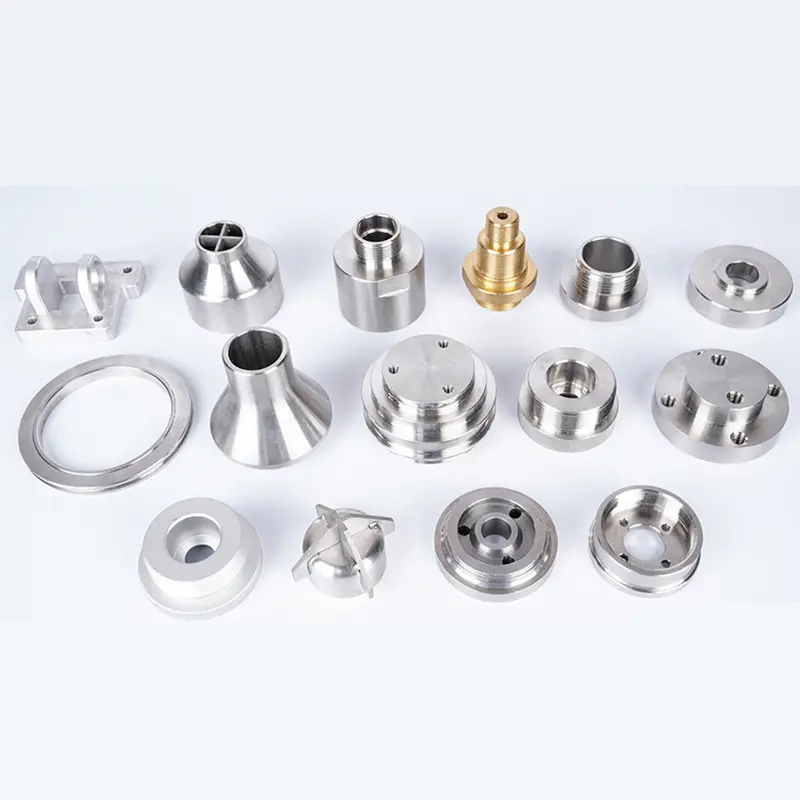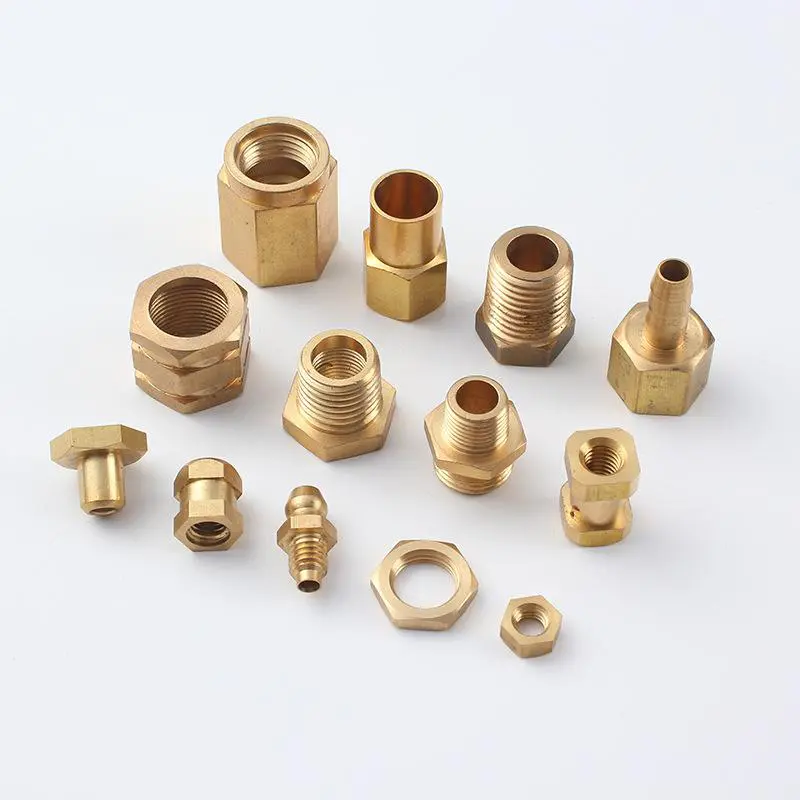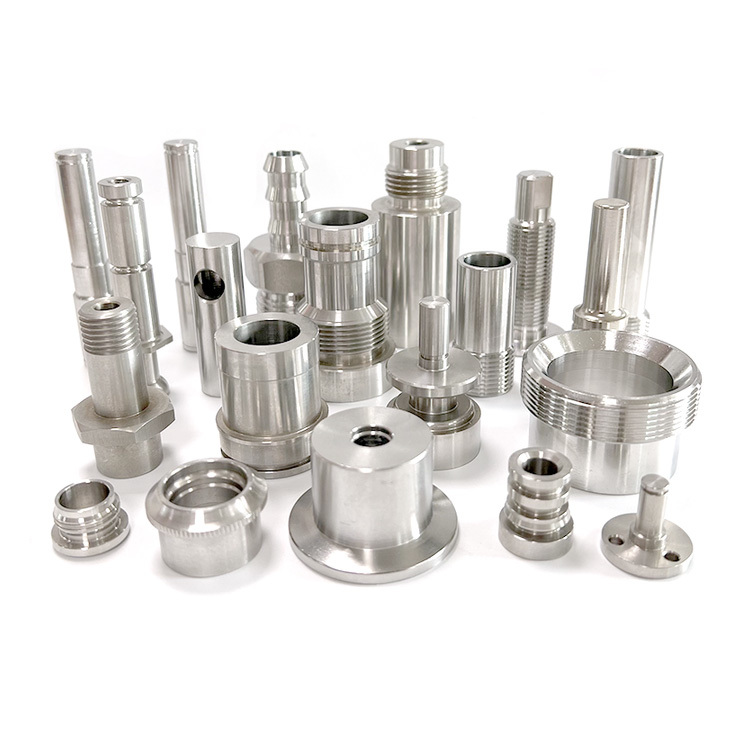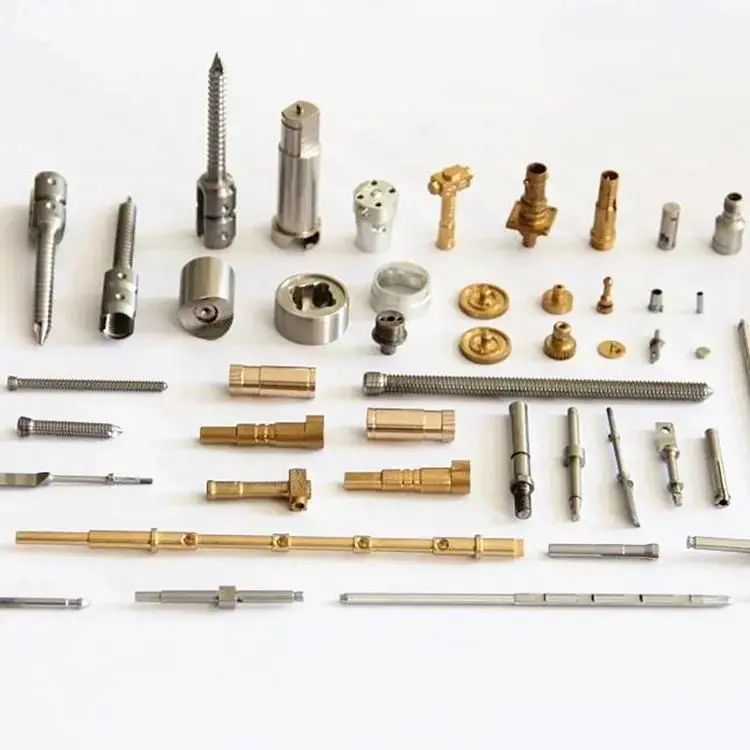The Future of Manufacturing: Innovations in CNC Swiss Aluminum Machining
Published Time:
2025-09-16
The Future of Manufacturing: Innovations in CNC Swiss Aluminum Machining
Manufacturing has always been at the forefront of technological advancements, and the landscape is rapidly evolving. Among these innovations, **CNC Swiss aluminum machining** stands out as a game-changer. This article explores the future of manufacturing, particularly focusing on the latest innovations in CNC Swiss machining, its benefits, and how it positions itself as a leader in the manufacturing sector.
Table of Contents
- 1. Introduction to CNC Swiss Machining
- 2. Understanding Aluminum in Manufacturing
- 3. Advantages of CNC Swiss Machining
- 4. Innovations in CNC Swiss Aluminum Machining
- 5. Applications of CNC Swiss Machining
- 6. The Role of Automation and AI
- 7. Future Trends in Manufacturing
- 8. Frequently Asked Questions
- 9. Conclusion
1. Introduction to CNC Swiss Machining
**CNC Swiss machining** is a highly specialized method of manufacturing that utilizes computer numerical control (CNC) technology to produce intricate parts with exceptional precision. This technique is particularly effective for machining cylindrical parts, which are commonly used in a variety of industries, including aerospace, automotive, and medical devices. The process involves driving a rotating bar of material through a set of machine tools that shape and cut the part to specifications.
The advent of CNC technology has transformed traditional machining practices. CNC Swiss machining allows for greater automation, higher production speeds, and improved accuracy, making it an essential process in modern manufacturing. In the context of aluminum machining, CNC Swiss machines excel due to aluminum's favorable properties, including lightweight, corrosion resistance, and good machinability.
2. Understanding Aluminum in Manufacturing
Aluminum is one of the most widely used materials in manufacturing due to its unique characteristics. It offers an excellent strength-to-weight ratio, making it ideal for lightweight applications. Additionally, aluminum is resistant to corrosion, which is crucial for components exposed to harsh environments.
The **versatility of aluminum** extends to its ease of machining. It can be formed into complex shapes without compromising structural integrity. By utilizing CNC Swiss machining, manufacturers can achieve tighter tolerances and improved surface finishes. As industries push for lightweight and efficient designs, the demand for aluminum components continues to grow.
3. Advantages of CNC Swiss Machining
CNC Swiss machining offers several advantages that make it a preferred choice for manufacturers:
3.1 Precision and Accuracy
The **precision** of CNC Swiss machining is unparalleled. The computer-controlled processes ensure that every part is crafted to exact specifications, minimizing waste and enhancing product quality.
3.2 Increased Production Efficiency
CNC Swiss machines can operate continuously with minimal downtime. This capability results in higher production rates, allowing manufacturers to meet demand efficiently.
3.3 Flexibility in Design
CNC Swiss machining accommodates complex geometries and intricate designs, providing manufacturers with the flexibility to innovate without compromising on quality.
3.4 Cost-Effectiveness
While the initial investment in CNC Swiss machinery can be substantial, the long-term savings in labor costs, material waste, and production times often justify the expenditure.
4. Innovations in CNC Swiss Aluminum Machining
As the manufacturing landscape evolves, so do the technologies that drive it. Recent innovations in CNC Swiss aluminum machining have enhanced capabilities and broadened applications:
4.1 Hybrid Machining Techniques
The integration of **additive manufacturing** with CNC Swiss machining, known as hybrid machining, allows for the creation of complex parts with both subtractive and additive processes. This innovation reduces material waste and opens new avenues for design.
4.2 Advanced Tooling Materials
The development of cutting tools made from advanced materials, such as polycrystalline diamond (PCD) and cubic boron nitride (CBN), has improved cutting speeds and tool life, resulting in enhanced machining efficiency.
4.3 IoT and Smart Manufacturing
The Internet of Things (IoT) has begun to permeate CNC Swiss machining, enabling real-time monitoring of machine performance and predictive maintenance. This technology helps manufacturers optimize operations and reduce downtime.
4.4 Enhanced Software Solutions
Innovative software solutions facilitate advanced analytics and simulations, allowing manufacturers to optimize machining processes and predict outcomes before actual production.
5. Applications of CNC Swiss Machining
CNC Swiss machining is indispensable in a variety of sectors:
5.1 Aerospace Industry
In aerospace, precision is paramount. CNC Swiss machining produces critical components like brackets, housings, and fittings that must meet stringent safety and performance standards.
5.2 Medical Devices
The medical device industry relies on CNC Swiss machining for intricate and precise components, such as surgical instruments and implantable devices, that require high levels of reliability.
5.3 Automotive Sector
Automotive manufacturers utilize CNC Swiss machining for various parts, including fasteners and engine components, that enhance vehicle performance and safety.
5.4 Electronics Manufacturing
In electronics, CNC Swiss machining produces housings and connectors that facilitate the reliable operation of devices ranging from smartphones to industrial equipment.
6. The Role of Automation and AI
Automation and artificial intelligence (AI) are rapidly transforming CNC Swiss aluminum machining. By integrating AI into the manufacturing process, companies can achieve several key benefits:
6.1 Improved Quality Control
AI algorithms can analyze production data in real-time, identifying potential defects before they occur. This proactive approach to quality control enhances overall product reliability.
6.2 Enhanced Decision-Making
AI provides insights that help manufacturers make informed decisions regarding process optimizations, tool changes, and equipment maintenance.
6.3 Streamlined Operations
Automating repetitive tasks reduces labor costs, increases efficiency, and allows skilled workers to focus on more complex tasks, ultimately enhancing production capabilities.
7. Future Trends in Manufacturing
The future of manufacturing is poised for transformation with several emerging trends:
7.1 Sustainability Initiatives
As the planet faces environmental challenges, manufacturers are prioritizing sustainability. Innovations in CNC Swiss machining, such as energy-efficient processes and eco-friendly materials, support these initiatives.
7.2 Customization and Personalization
With advancements in CNC Swiss machining, manufacturers can offer personalized products tailored to specific customer needs, enhancing customer satisfaction and loyalty.
7.3 Global Supply Chain Optimization
As global supply chains evolve, manufacturers are investing in technologies that enhance transparency and efficiency, ensuring timely delivery of components and materials.
7.4 Workforce Development
The shift towards higher automation necessitates workforce development. Manufacturers are focusing on upskilling employees to manage and operate advanced machinery, ensuring a skilled workforce for the future.
8. Frequently Asked Questions
8.1 What is CNC Swiss machining?
CNC Swiss machining is a manufacturing process that utilizes computer numerical control technology to produce precision parts, particularly cylindrical components, using a sliding headstock.
8.2 Why is aluminum commonly used in manufacturing?
Aluminum is favored for its lightweight, corrosion resistance, and excellent machinability, making it ideal for a wide range of applications.
8.3 What are the benefits of using CNC Swiss machining?
The benefits include high precision, increased production efficiency, flexibility in design, and cost-effectiveness over the long term.
8.4 How does automation impact CNC Swiss machining?
Automation enhances CNC Swiss machining by improving production speeds, reducing labor costs, and allowing for real-time monitoring and optimization of processes.
8.5 What trends are shaping the future of manufacturing?
Trends include sustainability initiatives, customization, global supply chain optimization, and a focus on workforce development.
9. Conclusion
The future of manufacturing is being reshaped by innovations in CNC Swiss aluminum machining. As industries demand higher precision, efficiency, and sustainability, CNC Swiss machining stands out as a technological leader. With advancements in automation, AI, and hybrid machining techniques, manufacturers can expect improved quality, faster production rates, and greater flexibility in design. By embracing these innovations, we position ourselves at the forefront of the manufacturing industry, ready to meet the challenges and opportunities of tomorrow. Embracing these changes will not only enhance our competitiveness but also contribute to a more sustainable and efficient manufacturing ecosystem.
NewsCenter
Beijing Pafinal Precision Machinery Co., Ltd.
Email:sales@pafinal.com

Address: No. 239 Huanhe South Road, Tianjin Pilot Free Trade Zone (Airport Economic Zone), Tianjin
中企跨境-全域组件
制作前进入CSS配置样式
sales@pafinal.com:
Whatsapp:
在线客服添加返回顶部
图片alt标题设置: PAFINAL
表单验证提示文本: Content cannot be empty!
循环体没有内容时: Sorry,no matching items were found.
CSS / JS 文件放置地




 2025-09-16
2025-09-16


